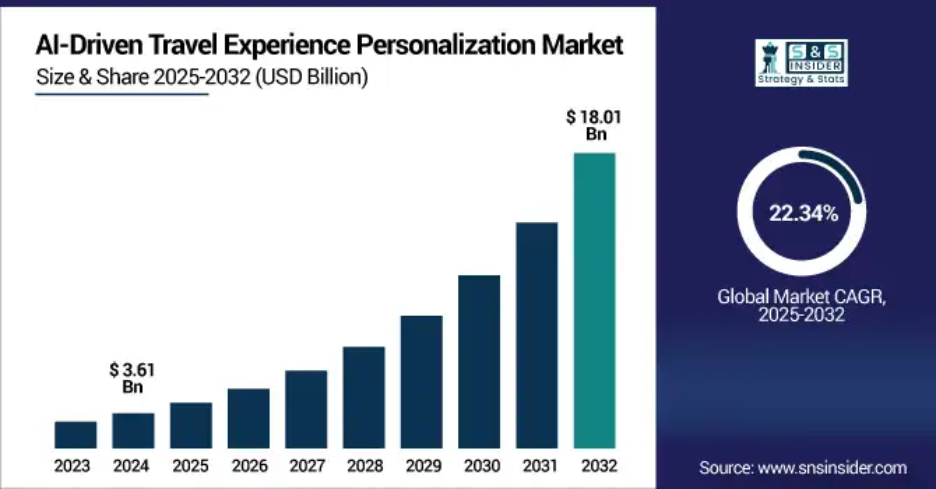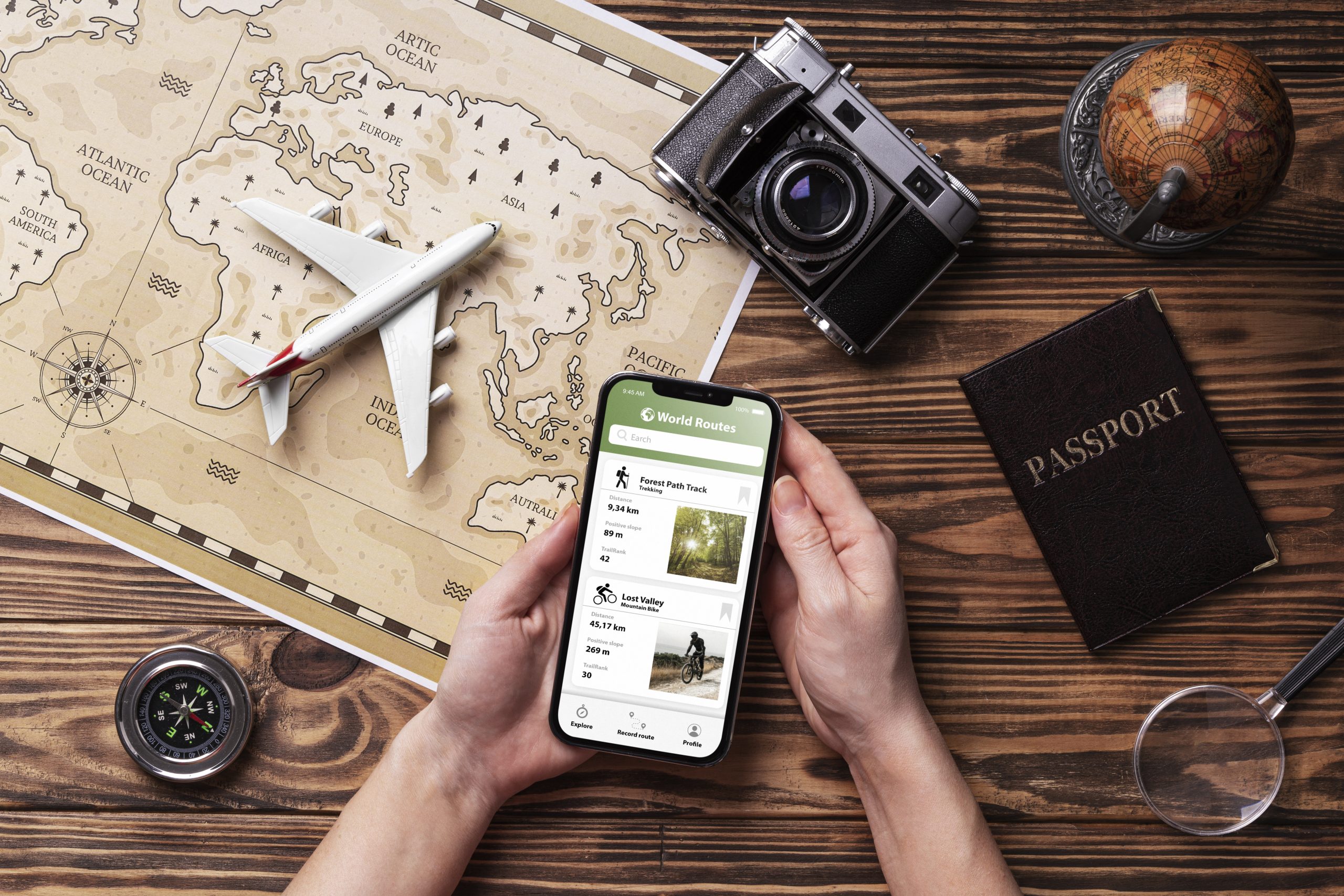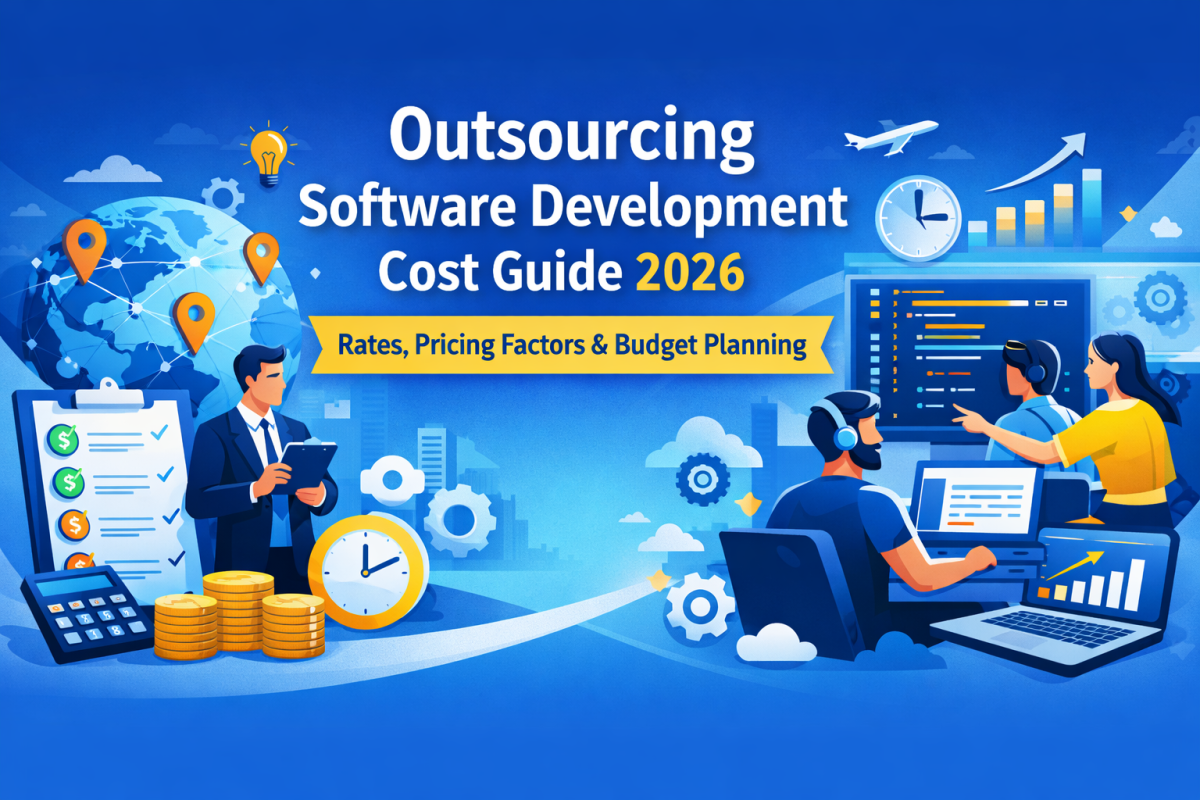If you have been thinking about developing travel software or building a travel mobile application for your business, one question usually stands out: How much does travel app development cost?
Whether you run a travel agency, booking service, tourism business, hotel chain, transportation platform, or a global OTA model, understanding the travel app development cost gives planning confidence, budget clarity, and a stronger roadmap.
By the end of this guide, you will get a clear view of travel mobile application development, key cost factors, features, pricing logic, and tips that help you build a strong product without unnecessary spending.
So, let’s talk practically, step by step.
How Big is the Travel App Market – Worldwide Statistics
Travel technology is seeing rapid scaling across the USA, UK, UAE, Europe, and Asia. Digital behavior shows that travelers no longer wait for travel agents. They research, compare, book, pay, and track travel plans online.
Some market data that gives you perspective,
- The online travel booking market is forecast to reach $1.2 trillion in revenue by 2026.
- As per Travel Weekly, more than 65 percent of travelers now prefer a travel booking app over a website for quick reservations and itinerary management.
- Over 80 percent of global travelers expect to book their trips entirely with mobile apps such as tourism mobile apps, travel cost apps, booking app solutions, and full travel management platforms.
- AI-powered personalization and mobile-first travel systems are projected to boost digital travel platforms by a CAGR of 22.34% from 2025 to 2032.

These numbers tell one clear thing: travel mobile app development is no longer optional. The market rewards businesses that operate digitally, scale globally, and automate booking and service routes.
Data-Backed Reasons Why Travel App Development is a Must in 2026
If you are still debating when to start developing travel software, here are meaningful signals pushing businesses worldwide toward travel app development,
- Travelers expect real-time confirmation, price comparison, and support in a single digital system.
- A travel booking app improves user retention through personalization, loyalty points, gamified offers, and automated follow-ups.
- Mobile-first travel businesses track analytics, behavior patterns, spending patterns, seasonal booking surges, and user preferences.
- Travel apps help reduce operational workload in areas such as itinerary edits, booking management, cancellation processing, communication, and customer support.
Travel brands across the USA, UK, UAE, and worldwide are rethinking their approach because travelers now want convenience, personalization, and fast access from a single travel app.
Why Evaluate Cost Before Beginning to Create a Travel App?
A clear cost roadmap avoids surprises. Travel businesses often jump into development without a cost framework and later face delays, rework, budget pressure, and development stalls.
Understanding travel app development cost helps you,
- Plan features logically
- Choose technology based on business goals
- Decide between iOS, Android, or cross-platform
- Allocate budget to branding, UI/UX, testing, and marketing
- Scale later without engineering complications
Evaluating travel app pricing before starting helps build a smooth progression from idea to launch.
Top Competitors You Should Analyze in the Travel App Industry
Before creating a travel mobile application, studying the market leaders gives you product clarity. These platforms built their position with user personalization, search efficiency, and strong booking logic.
Examples include,
- Booking.com
- TripAdvisor
- Airbnb
- Hopper
- Expedia
- MakeMyTrip
- Skyscanner
- Agoda
While each platform solves travel planning with a different strategy, they share one key strength: easy usage and customer-centric features.
Key Factors that Influence Travel App Development Cost
Travel application development cost does not carry a universal number. The budget varies depending on scale, functionality, design needs, integrations, development approach, and launch strategy.
Below are the major cost drivers.
1. Type of Travel App
Different travel businesses have unique goals. The travel app development cost varies based on the category,
- Travel booking app
- Tourism mobile app
- Travel cost app for budgeting
- Trip planning app
- Hotel booking app
- Flight search and booking app
- Comprehensive OTA platform
- Travel aggregator software
A simple travel cost app or basic booking app development may cost significantly less than a complete multi-service travel platform.
| Type of Travel App | Estimated Cost |
| Travel cost tracker or budgeting app | $18,000 to $40,000 |
| Basic hotel booking or trip planning app | $40,000 to $90,000 |
| Flight booking app | $60,000 to $120,000 |
| Multi-service OTA platform (like Booking.com) | $120,000 to $250,000+ |
2. Features and Integrations
Features add real value, but every feature impacts the development cost.
Common travel app features and their approximate cost contribution,
| Feature | Cost Range |
| User login & profiles | $2,000 to $6,000 |
| Search filters | $5,000 to $15,000 |
| GPS / location module | $8,000 to $25,000 |
| Notifications | $4,000 to $10,000 |
| Payment gateways | $10,000 to $30,000 |
| AI-based recommendations | $20,000 to $60,000 |
| Multiple languages and currencies | $10,000 to $25,000 |
Third-party integrations such as Sabre, Amadeus, GDS systems, Skyscanner data, or hotel aggregator APIs add licensing cost and technical implementation cost.
On average, integrations may add $10,000 to $60,000 or more, depending on the structure.
3. Backend Architecture
Backend decisions impact scaling capacity, performance, security, and reliability. Travel apps require,
- Secure user authentication
- High traffic support
- Real-time syncing
- Modular structure
- Role-based access
- Database optimization
A scalable backend avoids costly rebuilds later. Backend development normally costs $20,000 to $100,000+, depending on scale and engineering complexity.
4. Programming Frameworks
Your tech stack shapes maintenance cost, development speed, app stability, and upgrade flexibility.
Popular choices include,
- React Native
- Flutter
- Swift for iOS
- Kotlin for Android
- Node.js for backend
Laravel or Django for structured backend workflows
Cross-platform options reduce cost because one codebase supports both iOS and Android.
5. UI/UX Design
Travel apps must feel easy to navigate. UI/UX contributes to user retention. Design includes,
- Wireframes
- Interactive prototypes
- Brand visuals
- Animations
- Accessibility improvements
More screens and advanced animations require additional cost.
6. Choice of Platform
Pricing varies depending on whether you choose,
- iOS
- Android
- Web app
- Hybrid
- Cross-platform app
Many travel companies begin with one platform and later expand.
7. Team Location and Expertise
Travel app development pricing differs based on the development region.
For example,
| Region | Approximate Hourly Rate |
| USA or UK | $80 to $200 per hour |
| UAE or Western Europe | $60 to $140 per hour |
| India or Eastern Europe | $15 to $60 per hour |
A travel app development company with global experience often delivers structure, clarity, and better execution.
If you calculate that over a full development cycle, a travel app built entirely in the USA may cost between $120,000 and $250,000+, while the same app built with a hybrid or offshore team may range between $30,000 and $160,000+, depending on the app’s complexity, structure, and integration requirements.
Additional Factors Shaping Travel App Development Cost
Core app development is one part of the investment. There are also supporting costs that help your travel software run smoothly after launch. These elements help maintain performance, security, and scalability as your user base grows.
Below are additional factors and typical cost ranges,
| Cost Element | Approximate Cost |
|---|---|
| 24/7 support and customer assistance | $1,500 to $12,000 per month, depending on support level |
| Third-party API or software subscriptions (GDS, hotel feeds, maps, payments) | $500 to $10,000+ yearly |
| Cloud hosting and infrastructure | $200 to $2,000 per month based on traffic |
| Maintenance and ongoing upgrades | 15 to 25 percent yearly of the overall development cost |
| Marketing and user acquisition | $5,000 to $50,000+ depending on launch scale |
| Compliance, audits, and data protection requirements | $5,000 to $40,000 based on governance level |
These recurring components help your platform remain reliable as more users join and booking volumes increase. Planning for them early avoids unexpected expenses later.
Tips to Reduce Cost When Developing Travel Software
Cost control strategies help businesses build strong apps without financial strain,
- Start with MVP features and expand later
- Choose cross-platform development
- Use existing API sources instead of building everything custom
- Skip rarely used features in the first release
- Plan a structured development roadmap
- Test early instead of waiting until launch
- Pick reusable components for UI
- Avoid frequent direction changes during development
Small planning adjustments create a noticeable cost difference.
How to Create a Travel App with Optimized Costs?
A systematic process keeps travel app development cost predictable. The general approach includes,
1. Research and Competitor Mapping
Start by reviewing existing travel apps, travel booking platforms, and tourism mobile apps. Check reviews to understand gaps that users want solved. This helps define your travel app development goals clearly before investing.
2. Feature Planning and Validation
Create a feature list, then separate core features from optional ones. Many businesses begin with an MVP version to reduce initial travel app development cost while still entering the market early.
3. Selecting Tech Stack and Architecture
At this stage, plan the backend architecture, database model, and API structure. Choosing the right programming framework and hosting environment helps balance cost and performance.
4. UI/UX Design and Wireframing
Build prototypes to test user flow before development. This reduces revisions later and helps create a smooth travel mobile application experience.
5. Development, Testing, and Launch
Once everything is mapped, development begins. After building features, teams run QA testing, bug fixing, deployment, and launch.
6. Optimization and Growth
Post-launch updates, marketing, and analytics help improve the platform and scale revenue.
Working with Vrinsoft Technology, an experienced travel app development company, helps streamline these steps and optimize costs from planning to deployment.
FAQs About Travel App Development
Here are answers to some of the most asked questions related to travel app development,
1. How much does it cost to develop a travel app?
On average, travel app development cost starts around $18,000 for a basic structure, while full travel booking app development or OTA platform costs range between $50,000 to $250,000 or more based on scale, features, and integrations.
2. How to develop a travel app?
Create an idea blueprint, analyze competitors, define your feature scope, pick technology, plan UI/UX, select a travel application development partner, develop in milestones, test thoroughly, and launch with feedback-driven improvements.
3. Are travel apps profitable?
Yes. Profit comes from booking fees, commissions, ads, subscription models, premium features, affiliate partners, and cross-selling.
4. What is the most profitable niche in travel app development?
OTA marketplaces, flight and hotel booking platforms, AI-driven itinerary systems, corporate travel management software, and travel cost app solutions are currently trending.
Start Your Profitable Journey with an Experienced Travel App Development Partner
If you’re planning travel mobile app development in 2026, this is the right stage to take the next step. The travel app market is expanding, travelers now prefer digital booking experiences, and businesses investing early gain a long-term advantage.
Whether you need help understanding travel app development cost, selecting technology, building features, planning integrations, or forming a digital strategy, our team is here.
At Vrinsoft Technology, a top travel app development company, we work with global travel businesses and startups looking to build scalable digital platforms. Our team handles iOS builds, Android development, cross-platform development, backend engineering, API connections, and long-term maintenance.
We have extensive experience of 15+ years working with startups, mid-sized companies, enterprises, and global brands. Explore our portfolio to see the solutions we have delivered to global brands. You can check our work on Behance and Dribbble for visual case studies and detailed project execution insights.
Ready to build your product?
If your next step is getting a real estimate based on your requirements, share your travel app idea with us. We will evaluate your goals and prepare a detailed cost breakdown aligned with your vision.
Contact our team:
India: +91 72279 06117
USA: +1 747 228 3878
UK: +44 7520 641447
Email: sales@vrinsofts.com










